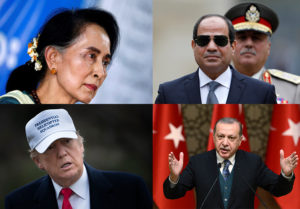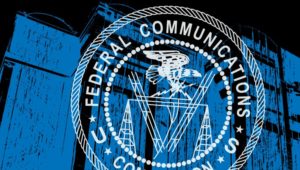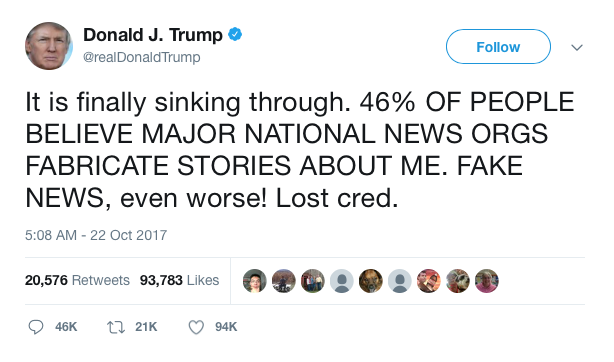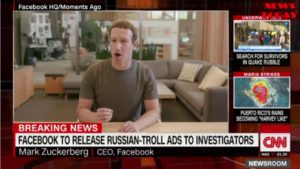Sinclair Broadcast Group owns 193 local TV stations in 89 markets around the US. As the largest owner of local TV stations, they wield enormous influence and are closely watched by those who are concerned about media convergence and consolidation.
 If you were paying any attention to social media this past few days you probably saw a short video (edited by Timothy Burke of Deadspin) that mashed up recordings of Sinclair anchors/reporters reading from the script that was sent to affiliate stations. Here’s the script that Sinclair’s management asked each station’s news department to read on-air:
If you were paying any attention to social media this past few days you probably saw a short video (edited by Timothy Burke of Deadspin) that mashed up recordings of Sinclair anchors/reporters reading from the script that was sent to affiliate stations. Here’s the script that Sinclair’s management asked each station’s news department to read on-air:
“Hi, I’m (anchor A) ____________, and I’m (anchor B) _______________…
(B) Our greatest responsibility is to serve our (station location) communities. We are extremely proud of the quality, balanced journalism that (station call letters) News produces.
(A) But we’re concerned about the troubling trend of irresponsible, one sided news stories plaguing our country. The sharing of biased and false news has become all too common on social media.
(B) More alarming, some media outlets publish these same fake stories… stories that just aren’t true, without checking facts first.
(A) Unfortunately, some members of the media use their platforms to push their own personal bias and agenda to control ‘exactly what people think’…This is extremely dangerous to a democracy.
(B) At (station call letters) it’s our responsibility to pursue and report the truth. We understand Truth is neither politically ‘left nor right.’ Our commitment to factual reporting is the foundation of our credibility, now more than ever.
(A) But we are human and sometimes our reporting might fall short. If you believe our coverage is unfair please reach out to us by going to (station call letters)news.com and clicking on CONTENT CONCERNS. We value your comments. We will respond back to you.
(B) We work very hard to seek the truth and strive to be fair, balanced and factual… We consider it our honor, our privilege to responsibly deliver the news every day.
(A) Thank you for watching and we appreciate your feedback”
When you just read the script there’s not much that raises concern. Fake news and biased reporting shared on social media ARE, in fact, “threats to democracy.” And few would argue the idea that truth is “neither politically left nor right.” And in fairness to Sinclair the editing of the video was manipulative. The repetitiveness of certain phrases and the omission of the call for input and feedback was intentionally designed to create its own bias.
But the optics tell another story. Comedian and provocateur Jon Oliver said, “Nothing says ‘we value independent media’ like dozens of reporters forced to repeat the same message over and over again, like members of a brainwashed cult.”
The idea that a network of local TV stations, and their news departments, would be directed by their corporate owners to fall in line and deliver a commentary decrying “fake news” is problematic. For one, it sounds too much like the weaponization of the term “fake news” that President Trump has perfected in his first year in office. Add to that the fact that Sinclair leans to the conservative side of the political spectrum. And finally, Sinclair is asking the FCC to allow the acquisition of an additional 42 stations as part of their purchase of Tribune Media. All of this combined makes it look like a political maneuver rather than a sincere call to action.
Fake news and bias are real problems…but they won’t be solved by empty promises or by using the issue as a political weapon. What we need is a serious discussion about how we got ourselves into this mess, and how we can get ourselves out.

 The 2018 Winter Olympic Games, aka XXIII Olympic Winter Games, are underway in
The 2018 Winter Olympic Games, aka XXIII Olympic Winter Games, are underway in 





